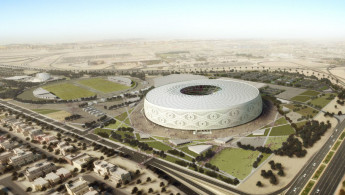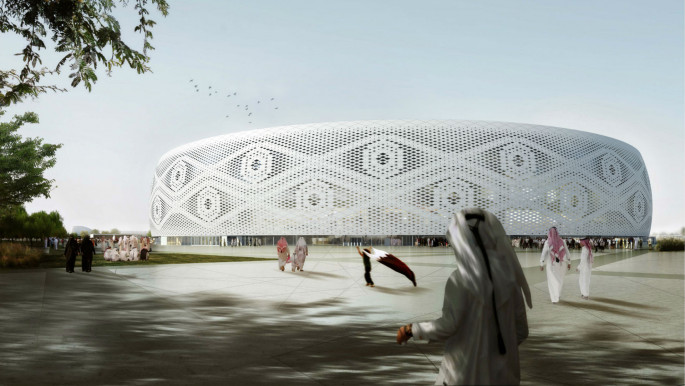Qatar's 'World Cap': Doha unveils plans for stunning new football stadium
Qatari World Cup organisers have presented stunning new plans for the 40,000-seat al-Thumama Stadium, drawing inspiration from the traditional "gahfiya" cap commonly worn under the male headscarves in the Gulf.
The design by Qatari architect Ibrahim M. Jaidah is one of seven stadiums being built for football's biggest international tournament in five years.
"This symbolic design embodies everything that unites us as Arabs and Muslims, and is a fitting tribute to the first FIFA World Cup in the Middle East," said Hassan al-Thawadi, Qatar's 2022 committee chief.
Qatar is building a new port and metro system in addition to the new stadiums, part of a $200 billion infrastructure upgrade in the country.
The tournament is the centrepiece of a strategy to project Qatar onto the global stage via sport.
The al-Thumama Stadium in the Doha suburbs is due to be completed by 2020 and will be used for matches up to the quarter-finals in the World Cup.
The final will be staged at the Lusail Stadium on 18 December 2022.
The Gulf state is moving ahead with large-scale World Cup preparations despite a diplomatic rift with its neighbours.
On 5 June, Saudi Arabia, Bahrain, Egypt and the United Arab Emirates cut ties with Qatar, shutting down air, maritime and land links with Doha.
The Saudi bloc also imposed an economic blockade on Qatar, accusing it of supporting "terrorists" and of being too close to Iran. Doha vehemently denies the charges.
To counter the blockade, ally Turkey and neighbouring Iran have been pouring in food supplies by air and sea.
Analysts say Qatar's resilient economy will be able to withstand the Saudi-led blockade for many years.




